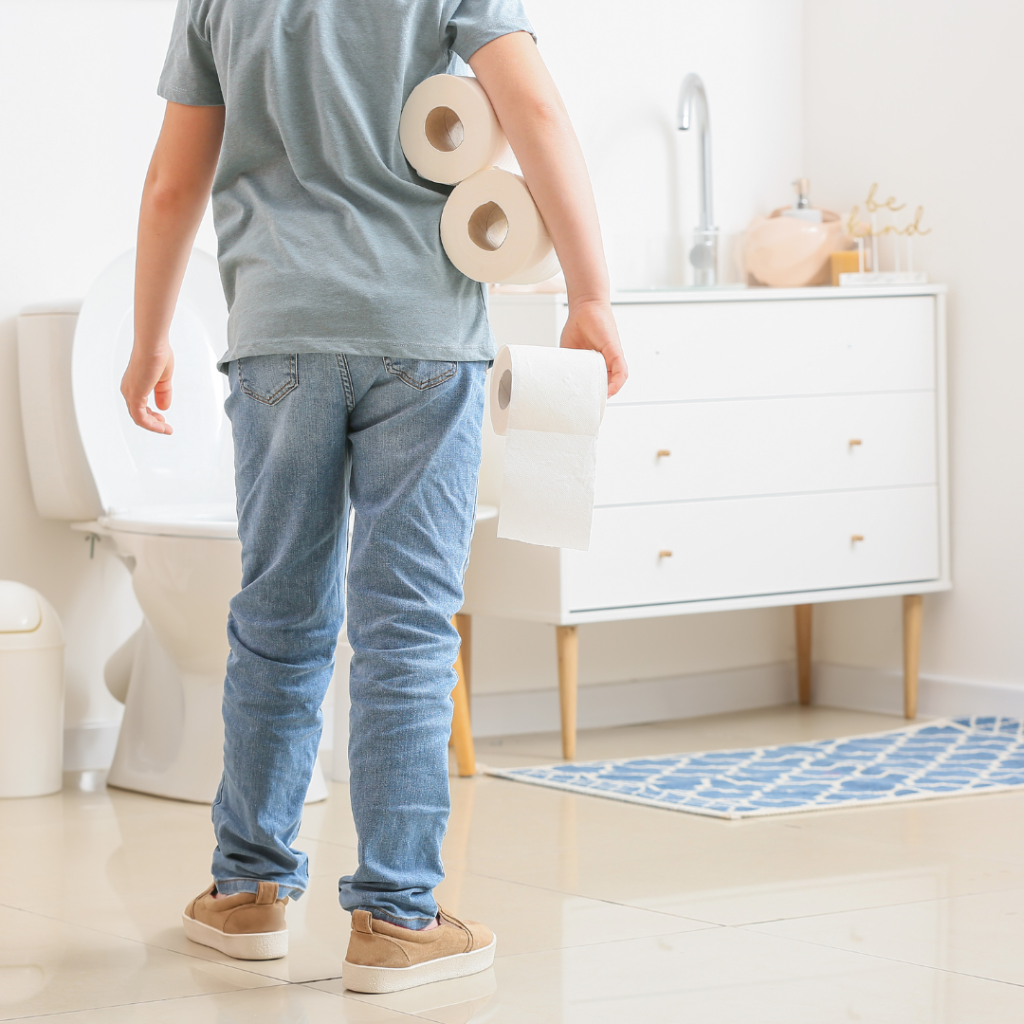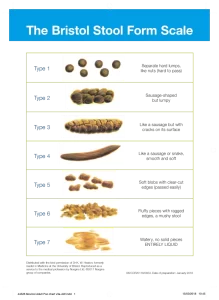Constipation is a common concern among children, and it can be a source of discomfort and frustration for both children and parents alike. Therefore, it’s important to understand what causes constipation, what are the symptoms, and how it can be managed.
What is Constipation?
Constipation refers to infrequent bowel movements or difficulty in passing stools. It is typically defined as having fewer than three bowel movements per week, accompanied by hard, dry stools that are difficult to pass. It can be caused by a variety of factors, including diet, hydration, lack of physical activity, certain medications, and stress. Check out the image below to see what stool looks like during constipation, healthy stool, through to diarrhoea.
(Click the photo to view it in a larger size)
- Diet: A diet low in fibre and high in processed foods can contribute to constipation. Encouraging a balanced diet with plenty of fruits, vegetables and whole grains is essential for regular bowel movements.
- Hydration: Inadequate fluid intake can lead to dehydration which contributes to constipation. If there is not enough water in the body, the large intestine absorbs the water from the food waste, making the stool hard and dry.
- Lack of Physical Activity: Regular physical activity helps stimulate bowel movements. Encouraging children to engage in active play, sports, or other physical activities can aid in supporting healthy bowel function. Enrolling children in outside school activities can increase physical activity.
- Toilet Training Issues: Delaying or pushing children to toilet train before they are ready can lead to constipation. It’s important to provide a relaxed and supportive environment during toilet training and avoid pressuring or creating anxiety around bowel movements.
Managing Children’s Constipation:
- Dietary Modifications: Increasing fibre intake by including more fruits, vegetables, whole grains, and legumes in the diet. Fibre can soften the stool so that it is easier to pass. Sources of fibre include, kiwi, broccoli, blueberries and even popcorn! Avoid excessive consumption of processed foods, sugary snacks, and drinks.
- Yakult: Yakult is a fermented milk drink filled with live beneficial bacteria known as Lactobacillus casei Shirota strain (LcS). It is a probiotic that can survive to reach the intestines alive where it positively alters the bacteria in the gut, to improve stool consistency. Therefore, it can help reduce the occurrence of constipation.
- Hydration: Ensuring children drink enough water throughout the day is important to maintain proper hydration. Carrying a water bottle will make it easier for children to access water. Adding fruits to the water may encourage children to drink if they are resistant. Also, letting them choose a fun water bottle helps them take ownership and encourage more frequent hydration breaks.
- Establish Regular Bathroom Habits: Encourage children to sit on the toilet for a few minutes at the same time every day, preferably after meals. This helps establish a routine and promotes regular bowel movements. Provide a footstool for proper positioning and consider using child-friendly toilet seats or potty chairs, if needed. It is also important to create a supportive and open environment where children feel comfortable discussing any concerns or fears related to bowel movements.
Understanding and effectively managing children’s constipation is crucial for their well-being. By implementing dietary modifications, promoting hydration, encouraging physical activity, and establishing regular bathroom habits, parents can help alleviate and prevent constipation in their children. If constipation persists or becomes chronic, it’s important to consult a paediatrician for further evaluation and guidance. Remember, patience, support, and a holistic approach are key to promoting healthy bowel habits in children.
Yakult helps with keeping us feeling good from the inside out! To get your daily bottle of goodness, you can buy Yakult from your nearest major supermarkets or your local independent grocery stores.
Reference:
- https://www.betterhealth.vic.gov.au/health/conditionsandtreatments/constipation-and-children
- https://link.springer.com/article/10.1186/1824-7288-37-28

